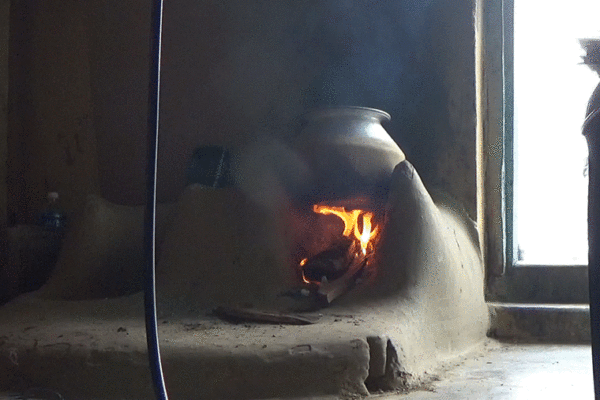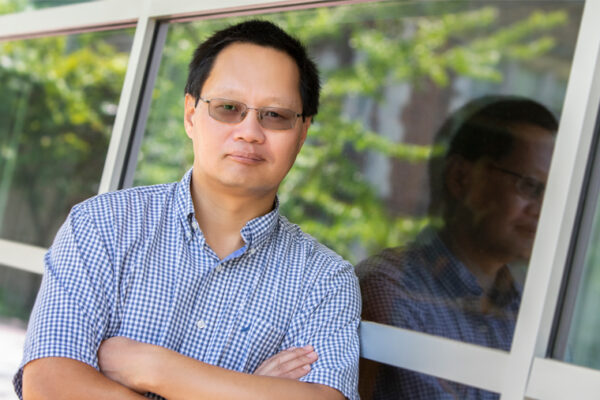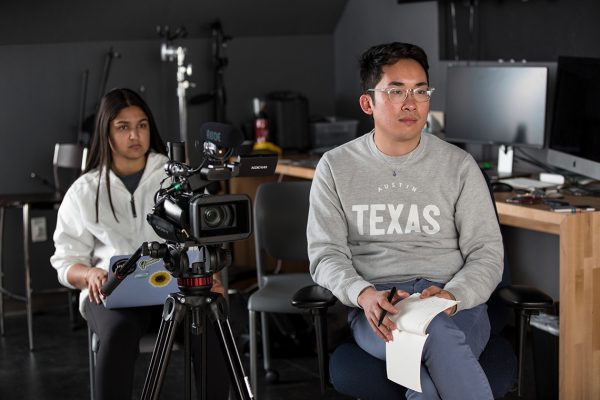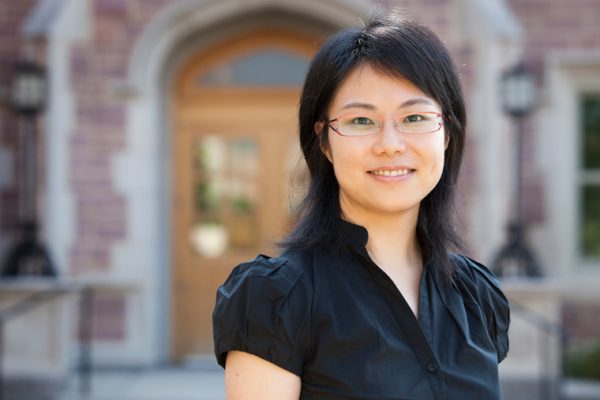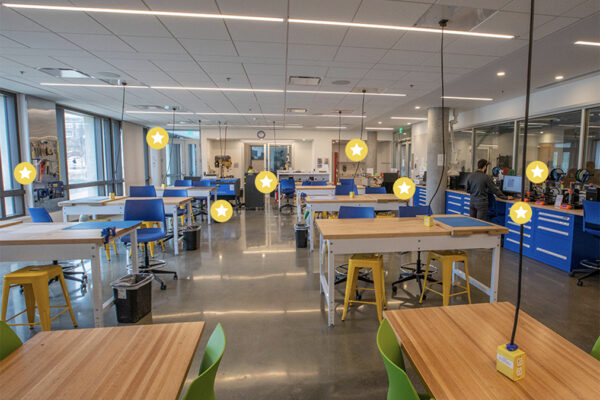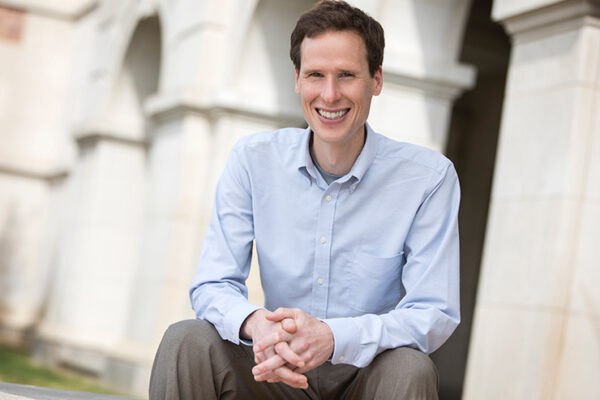Juniors Eisner, Klapow awarded prestigious Truman Scholarship
Roommates and best friends Zach Eisner and Max Klapow, juniors at Washington University in St. Louis, have both won a Truman Scholarship, the premier graduate fellowship in the United States for those pursuing careers as public service leaders. Chancellor Andrew D. Martin surprised the students with the news on Zoom.
Researchers find organic carbons are also absorbing light — and likely harming people’s health
Researchers at the McKelvey School of Engineering spent two weeks in India cooking with local residents. They found that soot wasn’t the only worrisome byproduct of traditional cookstoves; organic carbons are causing problems, too.
Guan inducted to AIMBE College of Fellows
Jianjun Guan, professor of mechanical engineering and materials science at the McKelvey School of Engineering, has been inducted into the American Institute for Medical and Biological Engineering College of Fellows.
Video series ‘WashU Between the Lines’ launches in time of uncertainty
In the video series “WashU Between the Lines,″ students share honest, personal stories about their lives on campus. Students Shelly Gupta and Rory Mather, both subjects and co-creators of the series, hope the project will encourage students to get to know each other, as we say at Washington University, by name and by story. And not just the stories posted on Instagram or Facebook.
Zhang receives CAREER award for work on computer efficiency
Xuan “Silvia” Zhang, assistant professor of electrical and systems engineering at the McKelvey School of Engineering, will use a five-year $500,000 award to make information processing more efficient.
Obituary: Anne Tao, university benefactor, 98
Anne Tao, a respected businesswoman, philanthropist, community leader and Washington University in St. Louis benefactor, died Tuesday, Jan. 21, 2020, in Franklin, Tenn. She was 98.
Fail Better with Andrew Bass
Develop an open-source nuclear detection system. That was the charge from the U.S. Department of Defense to members of its new internship program, the X-Force Fellowship. Washington University in St. Louis sophomore Andrew Bass had been selected to serve in the pilot cohort and arrived at Cape Canaveral in Florida convinced he would fail.
WashU Spaces: The Spartan Light Metal Products Makerspace
The Spartan Light Metal Products Makerspace is not the first makerspace on campus, but it is the most accessible. Anyone — students, faculty and staff — can be a member, no experience required. The latest installation of WashU Spaces offers a tour of the makerspace’s features.
‘Surfing attack’ hacks Siri, Google with ultrasonic waves
Using ultrasound waves propagating through a solid surface, researchers at Washington University in St. Louis were able to read text messages and make fraudulent calls on a cellphone sitting on a desk up to 30 feet away.
WashU Expert: Ingredients for a virus to become a pandemic
In this video, Washington University in St. Louis’ Michael Vahey discusses what it takes for a virus such as the coronavirus to reach pandemic status.
View More Stories

